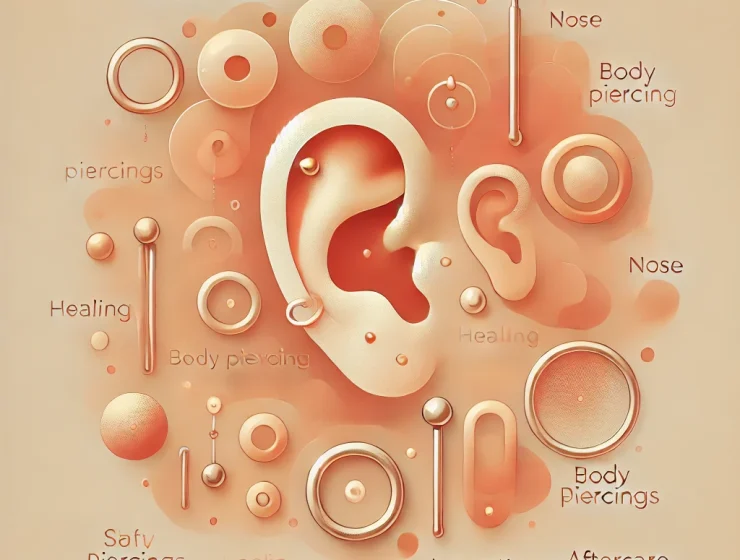We begrijpen dat je je misschien zorgen maakt over bruine afscheiding tijdens je zwangerschap. Daarom schrijven we van Verloskundigen PuurBegin deze blog om je gerust te stellen en je van de juiste informatie te voorzien. Je bent niet alleen en samen kunnen we deze fase van je zwangerschap met vertrouwen tegemoet zien.
Bruine afscheiding, zeker in het begin van je zwangerschap, komt vaker voor dan je denkt. Ongeveer 30% van de zwangere vrouwen heeft er last van, vooral rond de 5e of 6e week. Het goede nieuws is dat het in de meeste gevallen onschuldig is. Laten we eens kijken naar wat bruine afscheiding precies is, wat de oorzaken kunnen zijn en wanneer je eventueel aan de bel moet trekken.
Bruine afscheiding is eigenlijk niets meer dan een beetje oud bloed dat zich vermengt met je normale vaginale afscheiding. De kleur kan variëren van lichtbruin tot donkerbruin. Het is belangrijk om te weten dat de kleur bruin aangeeft dat het bloed al wat ouder is.
Mogelijke oorzaken van bruine afscheiding:
Wanneer een bevruchte eicel zich innestelt in de baarmoederwand, kan er een kleine bloeding ontstaan. Dit noemen we een innestelingsbloeding. Het bloedverlies is meestal minder dan bij een normale menstruatie en duurt vaak maar één tot drie dagen. Dit gebeurt meestal rond de tijd dat je eigenlijk je menstruatie zou verwachten, tot ongeveer 6 à 7 weken zwangerschap.
2. Goed doorbloede baarmoedermond:
Tijdens de zwangerschap is je baarmoedermond beter doorbloed. Hierdoor kunnen kleine bloedvaatjes makkelijker bloeden, bijvoorbeeld na het sporten, hoesten, niezen, tijdens een toiletbezoek of na geslachtsgemeenschap. Dit is meestal onschuldig, maar het kan wel bruine afscheiding veroorzaken.
3. Poliep op de baarmoedermond:
Een poliep is een klein, goedaardig gezwelletje op de baarmoedermond. Door de verhoogde druk in de onderbuik, bijvoorbeeld bij het persen, kan een poliep bloeden.
4. Infectie:
In zeldzame gevallen kan een infectie in de vagina bruine afscheiding veroorzaken. Een infectie moet altijd behandeld worden, dus neem contact op met je verloskundige of huisarts als je denkt dat je een infectie hebt.
5. Geen duidelijke oorzaak:
Soms is er geen duidelijke oorzaak te vinden voor de bruine afscheiding. Het bloedverlies stopt dan vanzelf weer. Sommige vrouwen bloeden nu eenmaal makkelijker dan anderen.
Wanneer moet je je zorgen maken?
Hoewel bruine afscheiding meestal onschuldig is, zijn er situaties waarin het belangrijk is om contact op te nemen met je verloskundige:
- Als de bruine afscheiding meerdere dagen aanhoudt.
- Als je helderrood bloedverlies hebt.
- Als je erge buikpijn hebt.
- Als je je zorgen maakt of ongerust bent.
Het is belangrijk om te onthouden dat het niet altijd mogelijk is om de oorzaak van bruine afscheiding te achterhalen. Soms is het gewoon een van die dingen die bij een zwangerschap horen. Probeer je niet te veel zorgen te maken en vertrouw op je lichaam als je je verder goed voelt en geen buikpijn ervaart. Als je je toch ongerust voelt, neem dan altijd contact op met je verloskundige. We zijn er om je te helpen en je gerust te stellen.
Wat kun je zelf doen?
Er is niet veel wat je zelf kunt doen om bruine afscheiding te voorkomen. Het is wel belangrijk om goed naar je lichaam te luisteren en rust te nemen als je je niet lekker voelt. Vermijd zware inspanning en stress. Zorg voor een goede hygiëne, maar gebruik géén zeep in de vagina. Dit kan de vaginale flora verstoren en irritatie veroorzaken.
Bruine afscheiding na 6 weken zwangerschap
Als je na 6 weken zwangerschap nog steeds last hebt van bruine afscheiding, kan een echo uitsluitsel geven. Op een echo is dan te zien of het hartje van de baby klopt en of alles goed gaat. Als er een kloppend hartje te zien is, is de kans op een miskraam klein.
Bruine afscheiding en een miskraam
Helaas kan bruine afscheiding soms ook een teken zijn van een beginnende miskraam. Het is belangrijk om te weten dat een miskraam niet te voorkomen is. Het is afwachten of het bloedverlies doorzet of stopt. Als je veel bloedverlies hebt, helderrood bloed met stolseltjes en erge buikpijn, is de kans op een miskraam groter. Weinig bloedverlies dat snel stopt, geeft een kleinere kans op een miskraam.
Conclusie
Bruine afscheiding tijdens de zwangerschap kan verschillende oorzaken hebben. Meestal is het onschuldig en verdwijnt het vanzelf weer. Het kan veroorzaakt worden door een innestelingsbloeding, een goed doorbloede baarmoedermond of een poliep. In zeldzame gevallen kan het een teken zijn van een infectie of een beginnende miskraam. Neem bij zorgen altijd contact op met je verloskundige. We zijn er om je te helpen en je gerust te stellen. Onthoud dat je niet alleen bent en dat we samen deze fase van je zwangerschap met vertrouwen tegemoet kunnen zien.
Blijf op de hoogte!
Volg ons op social media voor het laatste nieuws en een kijkje achter de schermen bij Verloskundigen PuurBegin in Kampen. Ontdek de dagelijkse avonturen van onze verloskundigen, waardevolle tips voor aanstaande ouders en inspirerende verhalen uit de praktijk. Klik op de onderstaande knoppen en blijf verbonden met ons hartverwarmende team!
 |
 |
Neem zorg voor jezelf en je kleintje!
Met lieve groeten,
Verloskundigen PuurBegin
Adres: Orkestlaan 148, 8265RC Kampen
Telefoon: 085 40 19 095






